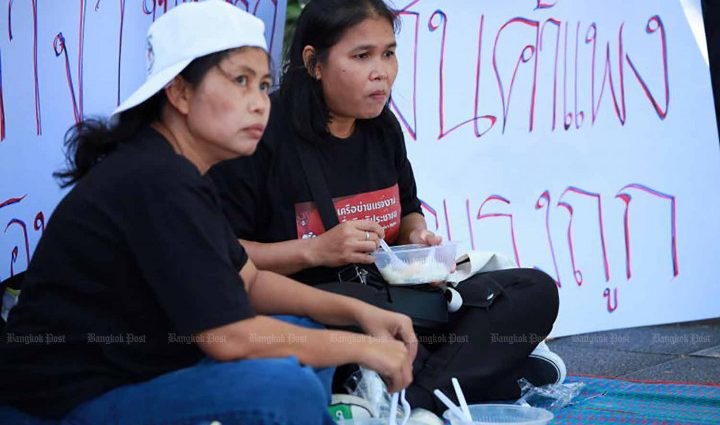PM has no right to intervene, it says

The Ministry of Labour on Sunday agreed to seek talks with the tripartite committee which approved a new minimum daily wage, after Prime Minister Srettha Thavisin said the panel’s decision on Friday approving an increase of 2 to 16 baht was too meagre.
The committee, which comprises the ministry, employers and employees and is also known as the wage board, however, insisted its decision is final and the PM has no legal authority to interfere with it.
Following the PM’s remark on Saturday, the committee had better hold talks as to whether its resolution on new wage rates could still be revised as encouraged by Mr Srettha, said Pairoj Chotikasathien, permanent secretary for labour.
Mr Pairoj said the decision was based on wage rates proposed by the wage sub-committee in each province and later screened by a central committee which proposes the new rates to the tripartite committee.
He was discussing with Labour Minister Phiphat Ratchakitprakarn whether the ministry should forward the wage committee’s resolution to cabinet as initially planned.
The PM might not be aware that the economic situation in each province is taken into consideration when striking the rate, said Atthayuth Leeyavanich, a member of the wage committee who represents employers.
The PM criticised the 2-baht rise in the daily minimum wage in Yala, Narathiwat and Pattani.
However, he may not have known that Pattani’s provincial wage sub-committee decided not to ask for a hike, while the provincial sub-committee in Yala and Narathiwat both proposed to raise 2 baht, said Mr Atthayuth.
The main wage board had then decided to raise the minimum wage for Pattani as well, as these three provinces appear to have a similar economic situation, he said. “The board’s resolution is final and it only needs to be forwarded to the cabinet as a way of formally informing it of its decision, not to seek any further approval,” he said.
If Mr Pairoj calls a meeting with the board to discuss about Mr Srettha’s remark, Mr Atthayuth said, he believed members of the board who represent employers would refuse to attend. However, if the PM really wants to meet the wage board, he said, he would be happy to offer an explanation to the PM to improve his understanding about the criteria.
Mr Atthayuth said members of the wage committee were grateful that Mr Phiphat told them at Friday’s meeting they could decide independently on the new wage rates. “The PM might say whatever he believes is right, but he has no authority to suspend the wage committee’s resolution which was reached lawfully,” said Suchart Chuenchoochit, vice president of the Federation of Thai Industries (FTI).
In the event Friday’s decision really does have to be revised, the process will have to start all over again with the provincial wage sub-committee proposing a new wage rate, which should take another two to three months to finish, he said.
Veerasuk Kaewboonpan, a member of the tripartite committee who represents employers, said that while he might agree that the wage rates should be higher, boosting them across the board to 400 baht as the government wishes is simply impossible at the moment.
“The Labour Protection Act says clearly that the tripartite wage committee holds the authority to decide independently on wage rates,” he said. As such, he urged both the tripartite committee and the government to meet half way and find common ground about the new wage hikes, saying if the cabinet rejects the committee’s resolution, a new problem will arise.
Only about 500,000 unskilled Thai workers will likely benefit from new minimum wage rises, as the other 5 million-plus workers paid the minimum wage are migrant workers, he said. And since every wage hike normally drives prices of consumer products up, all Thais inevitably will be affected by higher living costs, he said.

